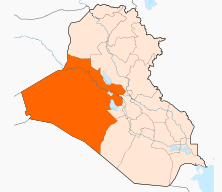The return of US ground troops to the Anbar Province, the site of some of the bloodiest battles during the last US occupation of Iraq, threatens to bring those US troops directly into contact with ISIS.
 Indeed, though the Pentagon downplays the risk of any incidents, saying the troops will remain at “fixed sites” inside Anbar, such an incident may be inevitable, with ISIS controlling more than 80 percent of Anbar, and doubtless keen to inflict US military casualties.
Indeed, though the Pentagon downplays the risk of any incidents, saying the troops will remain at “fixed sites” inside Anbar, such an incident may be inevitable, with ISIS controlling more than 80 percent of Anbar, and doubtless keen to inflict US military casualties.
The very sites the Pentagon is current considering are a series of bases as yet untaken by ISIS, and in the past ISIS has shown remarkable effectiveness in moving against such bases with both infiltration and bombing attacks, inflicting large Iraqi military casualties.
At times, those bases have found themselves surrounded by ISIS forces as well, which control most if not all of the highways in Anbar, and are able to keep the bases out of supply for long periods of time, softening them up for attack.
Though the US will doubtless be more aggressive in avoiding letting their troops fall out of supply, this only underscores the risk that putting US ground troops in Anbar means an inevitable clash.


